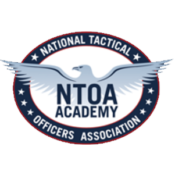Required Textbook: Anderson, T., et. al. (2012). Every Officer is a Leader: Coaching Leadership, Learning and Performance in Justice, Public Safety, and Security Organizations. New York: Troford.
Overview
As a result of the changing culture of law enforcement the first line and middle manager roles have a greater responsibility for coaching, leading and communicating. Even front line officers are expected to be more of a leader and facilitator. This course is designed to introduce students to the understanding of their natural style of communicating with others and to help them understand and apply the four (4) Facilitative Conditions: Genuineness, Empathy, Respect and Specificity.
Learning Objectives
Upon successful completion of this course, the student should be able to understand and describe:
- Self-Disclosure: Sharing Appropriately with Others.
- Image Management: Taking Responsibility for How You See Yourself.
- Impression-Management Skills: Taking Responsibility for How Others See You.
- Attending: Giving Undivided Attention to Others.
- Observing: Simply Seeing another Person without Distorting or Judging.
- Suspending Frame of Reference: The Key to the Golden Rule.
- Questioning: Appropriate Gathering of Information.
- Listening: Checking for Others Intend to Mean.
- Responding with Understanding: Getting on the Inside.
- Assertiveness: Speaking Honestly and Kindly with Self-Control.
- Confrontation: Telling People the Truth about Unacceptable Behavior.
- Challenging: Helping Others to see Strengths and Opportunities and Move Towards Positive Change.
Instructor: Dr. Terry Anderson holds a Ph.D. in Administration and Management (1992). His doctoral work was supervised by Dr. Robert Marx at the School of Business and Dr. Allen Ivey at the School of Counseling and Consulting at the University of Massachusetts, through Columbia Pacific University. His MA and BA were earned at California State University. Terry recently retired from being a professor of leadership, problem management and communication at the university for 38 years. He has conducted executive coaching and mentoring, organization development, strategic planning, team development, and/or executive leadership development projects for corporate and justice and public safety agencies for over 30 years. In public safety, he has been trusted by executives at Folsom Police, New Westminster Police Service, West Vancouver and Vancouver Police, San Diego Police, the Royal Canadian Mounted Police, the Correctional Service of Canada, the LA County Sheriff’s Department and LAPD. He is certified by California POST to facilitate the Executive Team Building Workshop. In the business sector he has done similar work with small businesses, and executives in Fortune 500 firms such as General Telephone and Electric (GTE) and The TORO Company. He is result-oriented and seeks always to move research-based best practices into practice. He is the coauthor of the book, Every Officer is a Leader: Coaching Leadership, Learning and Performance in Justice, Public Safety and Security Organizations, (2012). As Chief Leadership Officer he is an executive member of the Criminal Justice Commission on Credible Leadership Development (CJCCLD), and serves as the lead facilitator and Director on the competency-based project for developing Credible Leadership in police officers at the Los Angeles Police Department.
[scormcloud.training:57894bc66f5c6]

